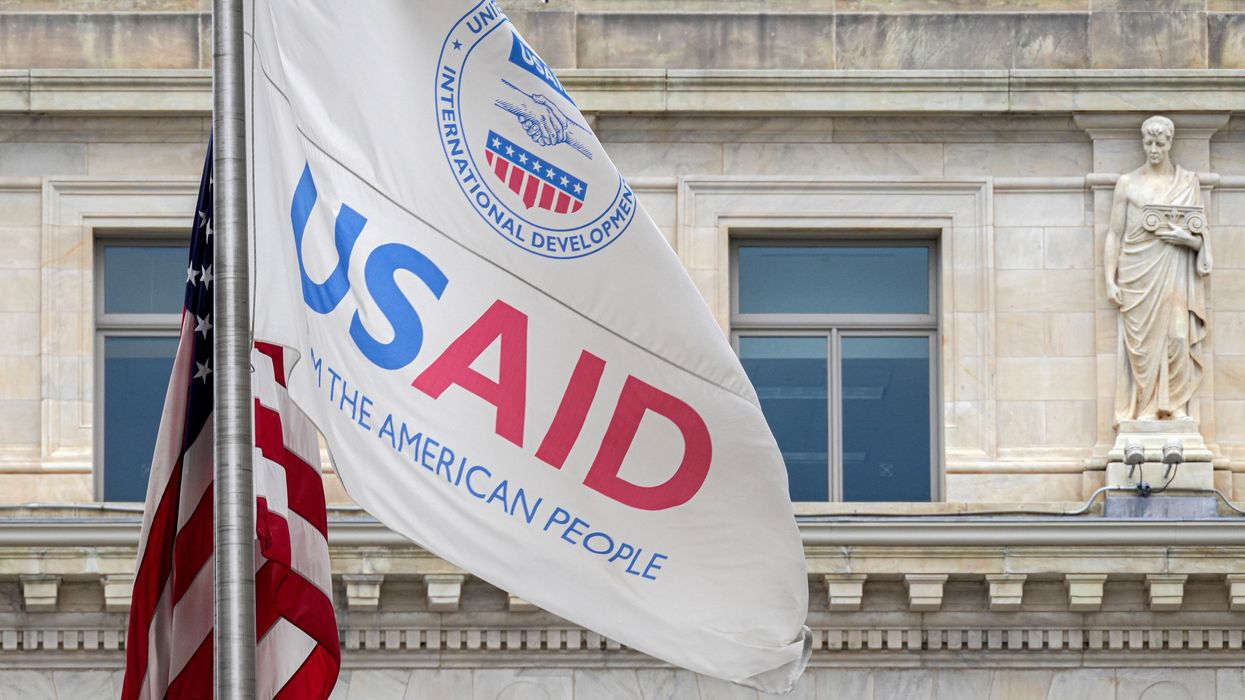What an agency, organization, or even an idea becomes will always resemble to some degree—though it fluctuates across time—the inspiration at its inception.
The United States Agency for International Development (USAID) was born from the US Foreign Assistance Act of 1961, and it enshrined for the first time in the short history of international development assistance the concept of people’s “participation” in their own change and growth. Now, generations later, based on evaluations world-wide across cultures, we know that the local beneficiaries need to be integral to the design, management, and evaluation processes in order for initiatives to provide continued gain for the people.
Development today, beyond any doubt, has revealed that the longevity of initiatives is primarily determined by the measure of participation. USAID was spawned on this idea, majorly pioneering the principle that beneficiary decision-making on the projects that impact their lives drives sustainability.
USAID was also founded on a corollary, indelible concept: poverty alleviation that addresses the economic, social, and environmental conditions that oppress people and deny them livelihood and peace is, in and of itself, the high purpose. Geopolitics is not the single or even primary factor for gaining assistance through USAID. Rather, uplifting humanity from the tortures of extreme poverty, disease, and catastrophes is its calling.
USAID delinked assistance being only provided to contain the Soviet Union. Human suffering, wherever it may emanate, is worthy of our attention and eradication. How these central concepts of USAID unfold in those nations of the world where it is invited is particular to the situations in which host nations find themselves.
For example, the experience of the High Atlas Foundation in implementing USAID’s Dakira cultural preservation program in Morocco (concluded at the end of 2024) ensured that today’s young people sincerely internalize their nation’s indelible heritage of Muslim, Jewish and Christian solidarity, integration, and shared experience and partnership for survival and growth. This is a priority held by the government and the people of this North African, Islamic country, and USAID provided the support for it.
In a world where religious-based strife, misunderstanding, separation, and even violence is ever present, worrisome, and unsustainable, the governments of Morocco and the United States together recognized that the kingdom’s experience and its domestic and global knowledge-sharing provide an inspiring model for young people and policymakers. In fact, interfaith collaboration is not only essential for peace, but our best development and growth depends upon it.
Morocco stands for intercultural dialogue and connectivity leading to livelihood, health, and education. It is not only a necessary, most viable pathway for itself but is an emblem for the world. USAID not only saves lives through the provision of essential medicine, food, and support in the face of overwhelming disaster, but it also is a critical partner in advancing American ideals with nations who also strive for a more perfect union and inspire others through their journey.
To be sure, there is an undeniable phenomenon among organizations and agencies as they grow and naturally change over decades. In time, it becomes increasingly difficult for any entity—including religions or institutions, be they public, civil, academic, or private—to remain absolutely true to the original vision that launched them.
How recognizable would nations of the world be to their founders? How recognizable are conglomerates to their original creators or religions to the prophecies that begot them? There may be no greater challenge for any collective body than to remain consistently true to the original mission over time.
Certainly, the High Atlas Foundation, dedicated to change driven by the people, finds it increasingly difficult to launch every action in every location with empowerment and building self-belief and confidence as the essential beginning. It is very difficult.
So, too, USAID needed to return to its community participation roots. With its necessary, admirable commitment to implementers’ financial, programmatic, and reporting compliance, USAID began to heavily rely upon larger organizations to administer local actions around the world. Those organizations in turn partnered with national organizations working at the local level. USAID re-emphasized that localization enacted alongside indigenous civil and private groups is critical for effective development.
The lessons in international development generated by USAID have profound implications for the United States’ internal growth. For example, cultural preservation efforts in Morocco, financed by USAID, underscore the centrality of interfaith partnership for achieving sustainable benefits. That vital lesson should be a guide for the White House Faith-Based Office, which stretches across federal agencies.
Community managed economic projects point to how decentralized administrative systems emerge from carrying out such actions. This points to ways the U.S. federal government can strengthen the enduring core of the country, which is its federalist system.
Yes, USAID promotes a more stable and prosperous world and helps to alleviate immediate suffering, but it also brings home vital lessons to promote the U.S.’ own best growth. The Farmer-to-Farmer Program, for example, enabled U.S. agricultural experts to devote millions of hours to share their vast knowledge with nations of the world. What they have learned during their volunteering with communities abroad has enhanced their own work, productivity, efficiency, and opportunities at home.
USAID is a reflection or extension of the American ideal and may be retrenched for a time, but no doubt, one day, it will continue. It must, lest its expression, which rings from every true American anthem, will grow silent. It is therefore bound to the destiny of the United States, whatever its iteration.
Yossef Ben-Meir is the President of the High Atlas Foundation.



















Trump & Hegseth gave Mark Kelly a huge 2028 gift